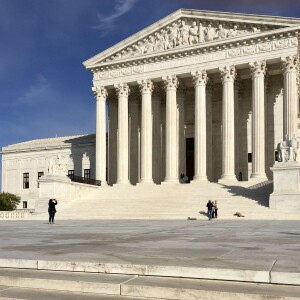
Murray v. UBS Securities, LLC (Whistleblower / Retaliatory Discharge)
 2024-02-08
2024-02-08
TREVOR MURRAY, PETITIONER v. UBS SECURITIES, LLC, ET AL.
As part of Trevor Murray's job at UBS, he had to file reports to the Securities Exchange Commission (SEC). In these reports, he had to certify that the reports reflected his personal and independent views. Despite physical separation from the rest of the unit, Murray claimed that he was receiving pressure from higher ups to skew his reports. He reported these conversations and stated that he thought the pressure was illegal. Evidently during internal discussions, UBS supervisors stated that Murray needed to be either fired or taken off the trading desk.
About six weeks after first reporting these concerns, Murray was fired. He sued UBS for retaliatory discharge under the Sarbanes-Oxley Act. A federal jury ruled for Murray. The jury was not instructed that UBS must have some sort of retaliatory intent. UBS appealed. The Second Circuit reversed and remanded, instructing for a new trial with a jury instruction requiring a finding of "retaliatory intent." The issue in front of the Supreme Court was whether the statutory language "discriminate against an employee . . . because of ” places the burden on the whistleblower to prove that the employer acted with “retaliatory intent" -- as the Second Circuit held. The Supreme Court disagreed, holding that the plain language of the not require a proving of this intent. Affirmed. Justice Sotomayor delivered the opinion for a unanimous court.
More Episodes
 2023-05-15
2023-05-15
 2023-05-15
2023-05-15
 2023-05-08
2023-05-08
 2023-05-03
2023-05-03
 2023-04-27
2023-04-27
 2023-04-27
2023-04-27
 2023-04-24
2023-04-24
 2023-04-24
2023-04-24
 2023-04-24
2023-04-24
 2022-08-16
2022-08-16
Create your
podcast in
minutes
- Full-featured podcast site
- Unlimited storage and bandwidth
- Comprehensive podcast stats
- Distribute to Apple Podcasts, Spotify, and more
- Make money with your podcast
It is Free
- Privacy Policy
- Cookie Policy
- Terms of Use
- Consent Preferences
- Copyright © 2015-2024 Podbean.com




